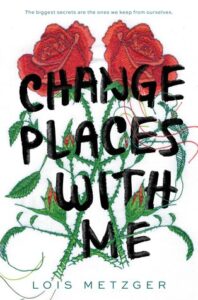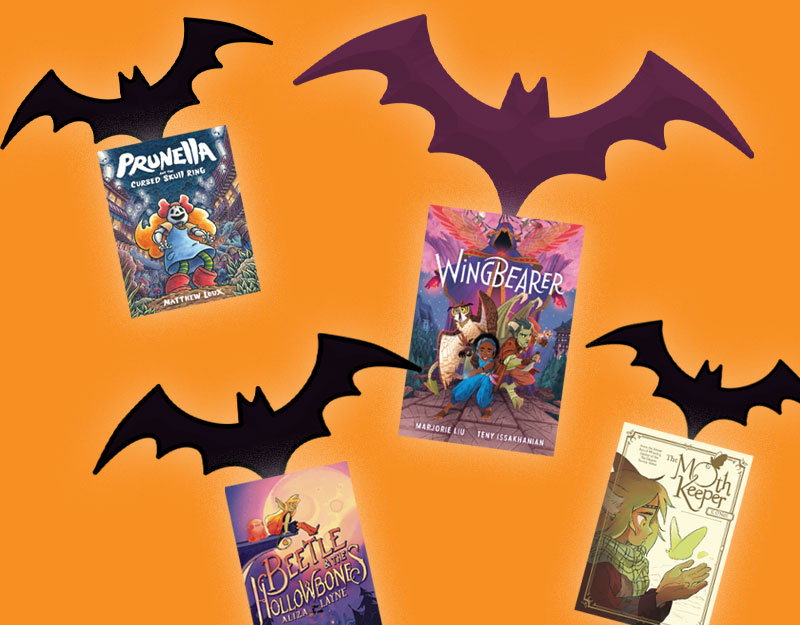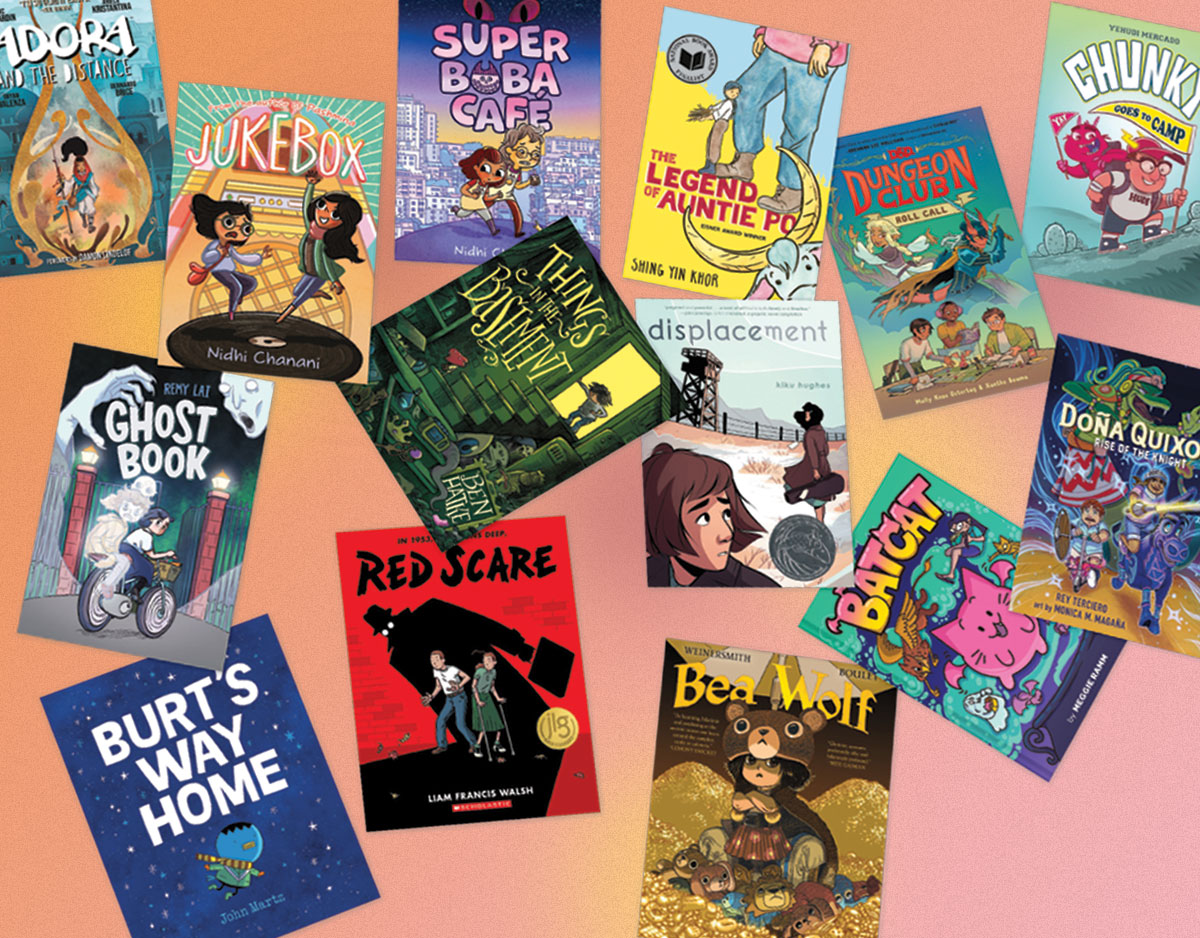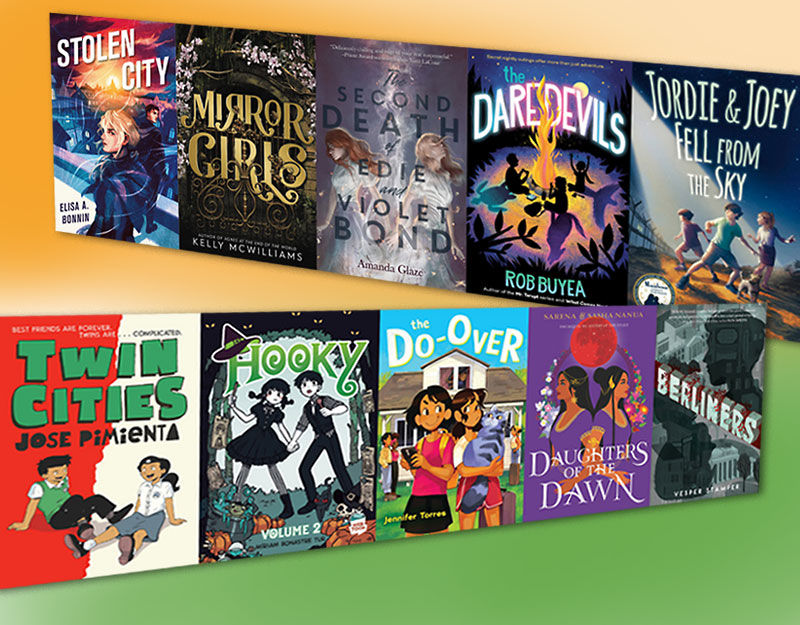#MHYALit: My Definition of Crazy, a guest post by author Lois Metzger
Today as part of the #MHYALit Discussion we are honored to host author Lois Metzger. Her newest book, Change Places with Me, will be released tomorrow. You can read all the #MHYALit posts here.
I’m at my bedroom window, looking out at the building across the way. Unbelievably, it’s on fire. I can see a girl facing me. Doesn’t she know she’s in a burning building and there are flames at her back? But she’s just standing there, staring at me. I start waving my arms at her—get out! She waves her arms too. Then I realize—I’m looking at a reflection. I’m the one in the burning building and the flames are behind me, coming closer.
ADVERTISEMENT
ADVERTISEMENT
I wake up, heart thudding, barely able to breathe, my nightgown clammy, as if I’d stood too close to actual flames.
As a kid growing up in Queens, in New York City, I had nightmares like this several times a week. In college I majored in psychology and read about “night terrors,” as they’re called, dreams so scary and troubling they wake you up. The textbook said that people got night terrors two or three times a year. I thought that must be a misprint. They meant a week. But then the book went on to say that people who had them more often might have mental-health problems.
Still, that didn’t mean I was crazy. I had a clear definition of crazy in my head. My grandfather.
####
My grandfather had lived his whole life in Vienna. When Hitler came to power in Germany, my grandfather didn’t see a threat because he’d fought in World War I on the side of the Germans. But after Hitler marched into Austria in 1938, my grandfather was persecuted because he was Jewish. At one point he was imprisoned, and beaten so badly that old surgery scars opened up again. For years he was on the run. In Yugoslavia, he was put in a number of small concentration camps.
After the war he came to America. He lived in Manhattan and loved that he could walk everywhere, as he had in Vienna. He came to our house a couple times a month and cooked egg noodles. I remember him as tall, kind of stooped over, and soft-spoken (after saying “hello” in English, he kept up a steady stream of conversation to himself entirely in German). He wasn’t all “there,” it was explained to my brother and me. He thought that his wife (my grandmother) was in touch with Hitler and that Hitler was coming to New York to find him. My grandmother had had to leave him; she found her own apartment not too far from us. We weren’t allowed to talk about my grandmother in my grandfather’s presence. We had to pretend she was dead or in Chicago. I don’t think it mattered that she could be dead one month and in Chicago the next.
Then, one day, he tried to kill a window washer by pulling his ladder away, because he thought the man was spying on him. My grandfather spent the rest of his life in a psychiatric hospital, though in his last years he had freedom to leave and go for walks.
Growing up, that was how I saw mental illness, as something distant and triggered by world events. (Or the occasional sighting on the street of someone who was no-doubt-about-it insane.) There was some talk that my grandfather may have had issues even before the war, but his war experiences pushed him far over the edge. As for my grandmother, who’d been on the run with him—she came through the war much stronger.
My grandmother was the one who noticed things in me. She said, “You feel too much.” As a kid, I was drawn to books about narrators who were also plagued by intense feelings—sadness, grief, anxiety, depression, guilt: Holden Caulfield in J.D. Salinger’s “The Catcher in the Rye,” and Frankie in Carson McCullers’s “The Member of the Wedding,” Gene in “A Separate Peace” by John Knowles, and Ralph in William Goldman’s “Lord of the Flies.” I didn’t know this was a kind of self-help, but it most definitely was. In middle-class Queens I couldn’t relate to Holden Caulfield’s life of privilege—I didn’t even know what a prep school was—but I was right there with him in every other way, though I never took it seriously when he insisted, “I’m crazy. I swear to God I am.”
ADVERTISEMENT
ADVERTISEMENT
It was only years later I realized the world of mental illness was a lot more inclusive and widespread than my narrow childhood definition. The novels I write tend to be about young people who don’t even know they’re part of this world, let alone realize there’s a world of help out there.
Meet Author Lois Metzger
Lois Metzger’s latest book, “Change Places with Me” (HarperCollins 2016), is about a girl desperate to avoid intense feelings and who has a dream about a burning building. She is the author of three other novels, including “A Trick of the Light,” about a boy with an eating disorder, and she has written two nonfiction books about the Holocaust. She lives in New York City with her husband and son. Please visit her at loismetzger.com and on Facebook and Twitter https://twitter.com/metzgerlois.
 Publisher’s Book Description: CHANGE PLACES WITH ME by Lois Metzger
Publisher’s Book Description: CHANGE PLACES WITH ME by Lois Metzger
Rose has changed. She still lives in the same neighborhood with her stepmother and goes to the same high school with the same group of kids, but when she woke up today, something was just a little different than it was before. The dogs who live upstairs are no longer a terror. Her hair and her clothes all feel brand-new. She wants to throw a party—this from a girl who hardly ever spoke to her classmates before. There is no more sadness in her life; she is bursting with happiness.
But something still feels wrong to Rose. Because, until very recently, Rose was an entirely different person—a person who is still there inside her, just beneath the thinnest layer of skin. (June 14, 2016 from Balzer and Bray)
Filed under: #MHYALit
About Karen Jensen, MLS
Karen Jensen has been a Teen Services Librarian for almost 32 years. She created TLT in 2011 and is the co-editor of The Whole Library Handbook: Teen Services with Heather Booth (ALA Editions, 2014).
ADVERTISEMENT
ADVERTISEMENT
SLJ Blog Network
Newbery/Caldecott 2026 Spring Check-In
Remember (the) Maine: A Stroll Around Kittybunkport with Scott Rothman
5 Unlimited Access Digital Comics to Boost K–8 Reading | Sponsored
When Book Bans are a Form of Discrimination, What is the Path to Justice?
ADVERTISEMENT








